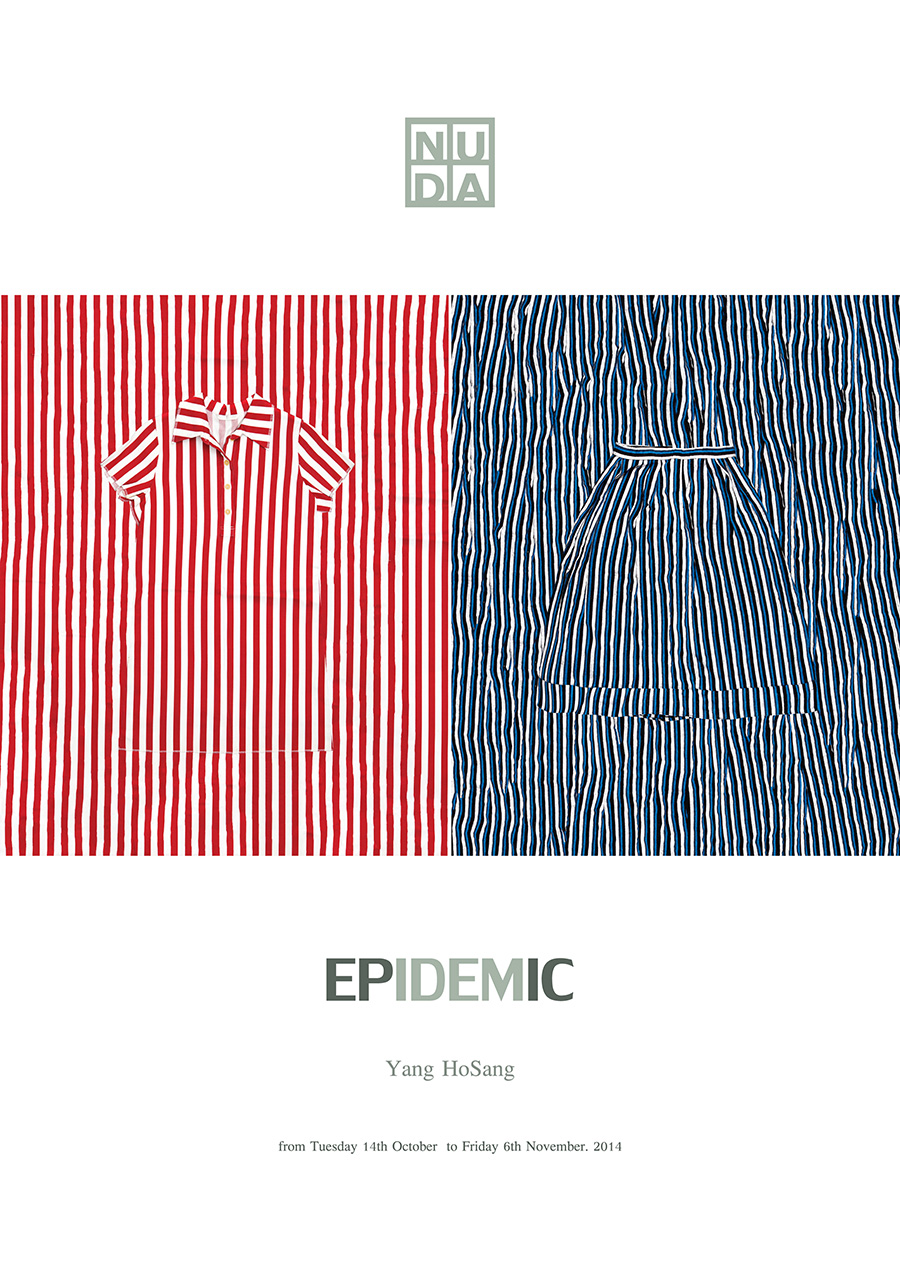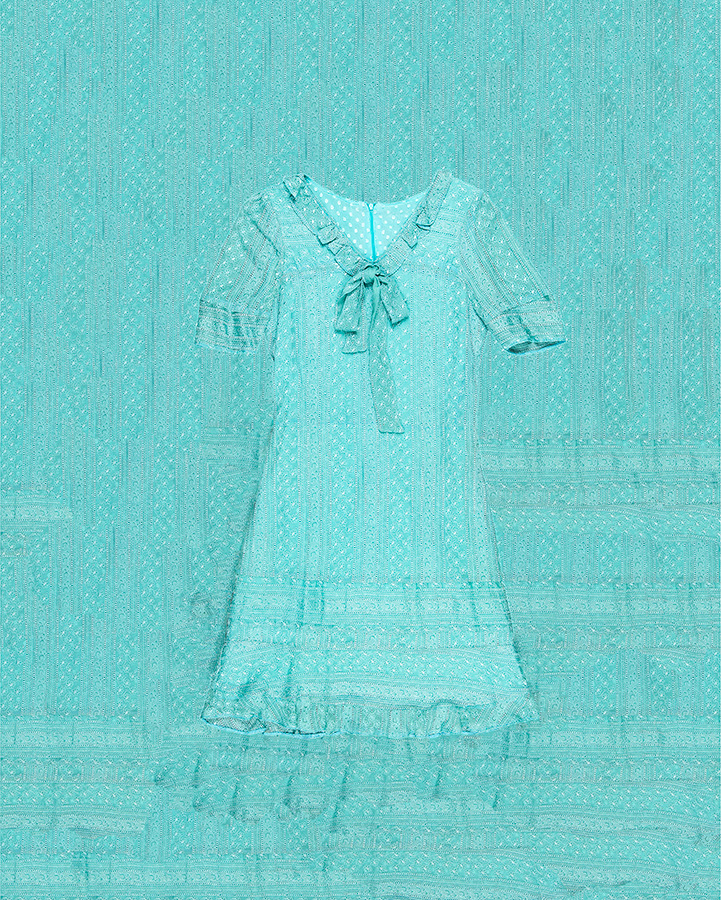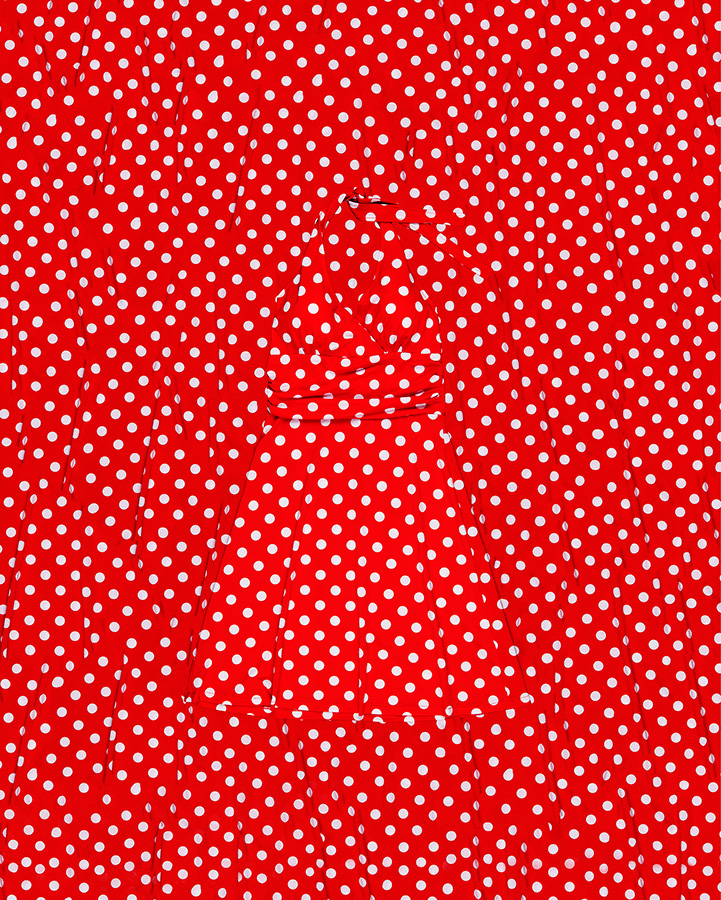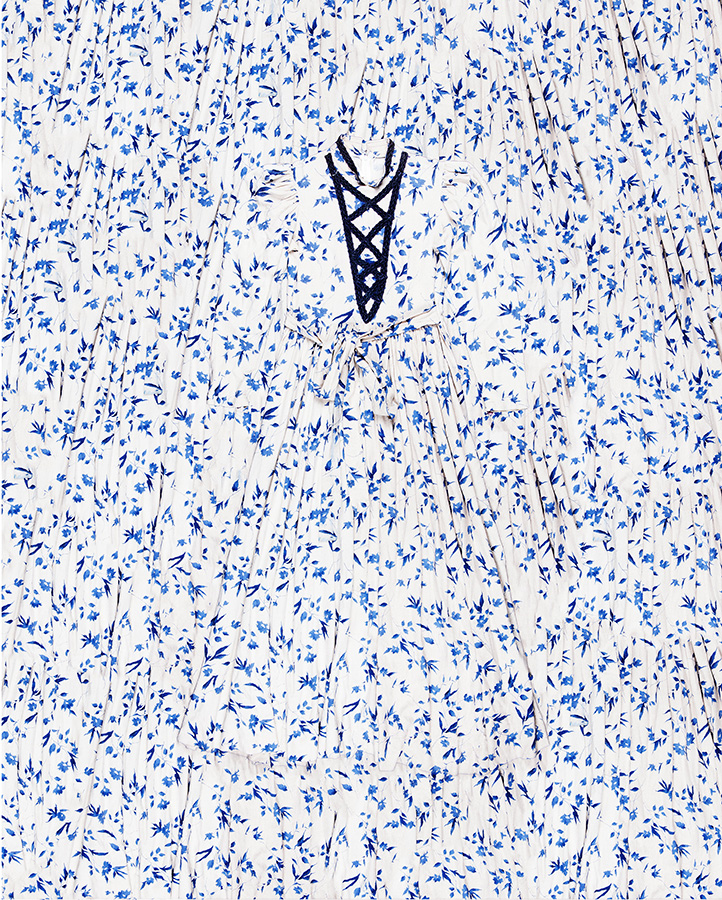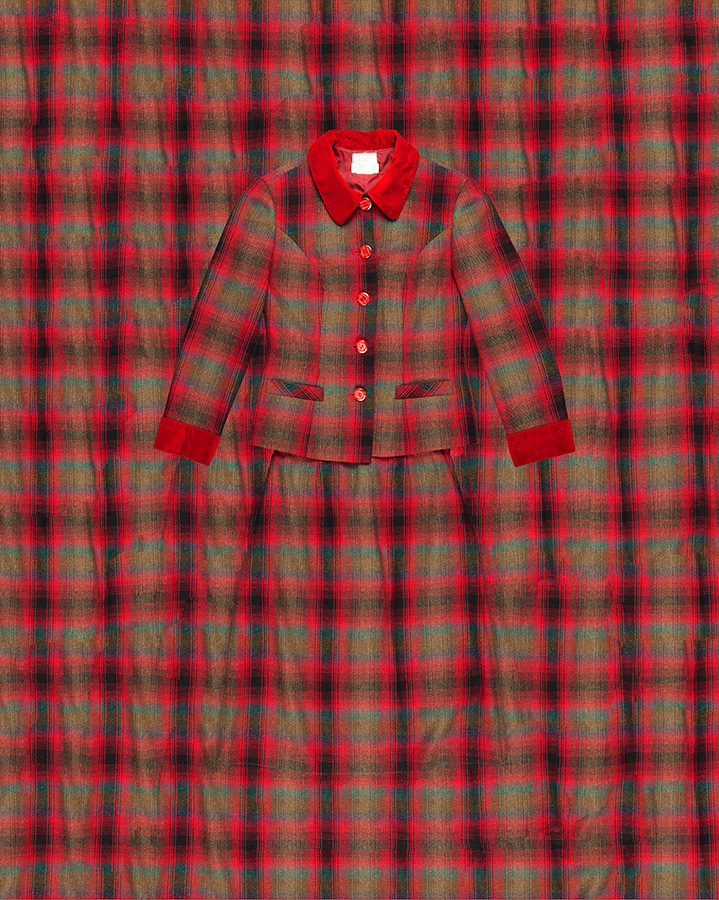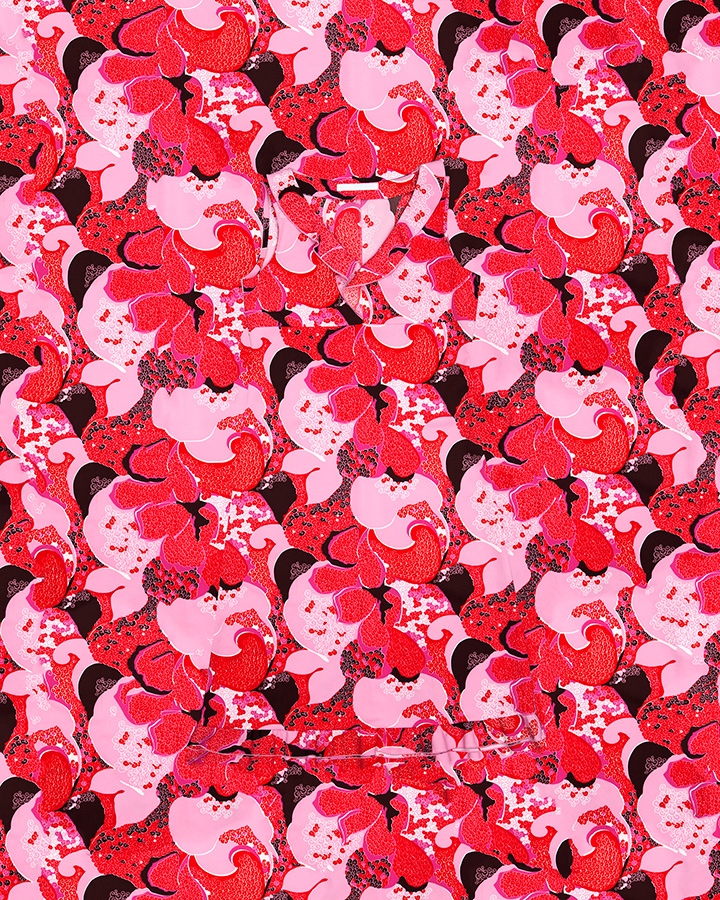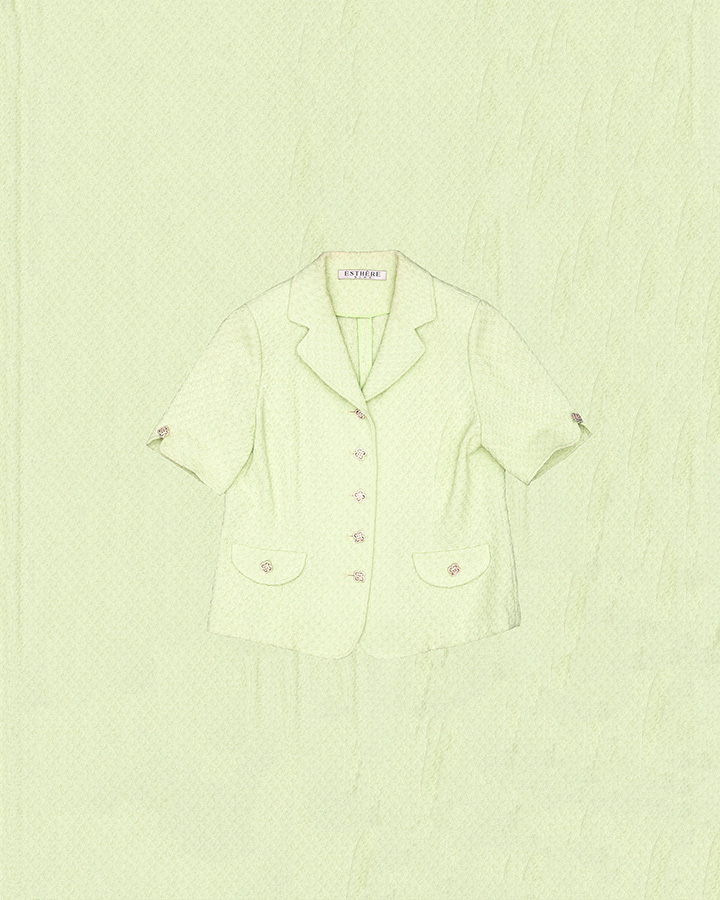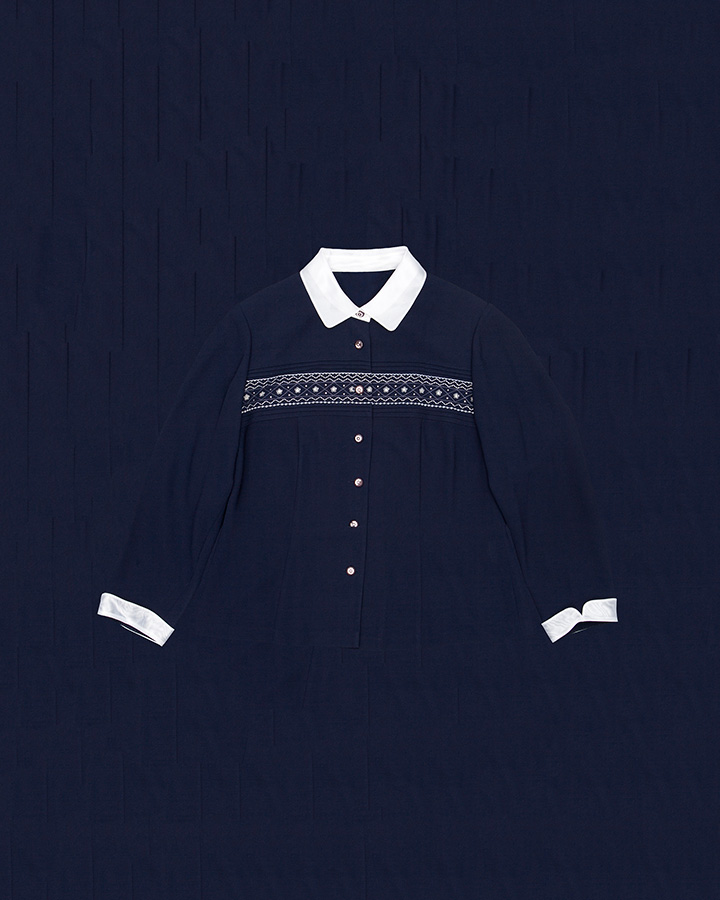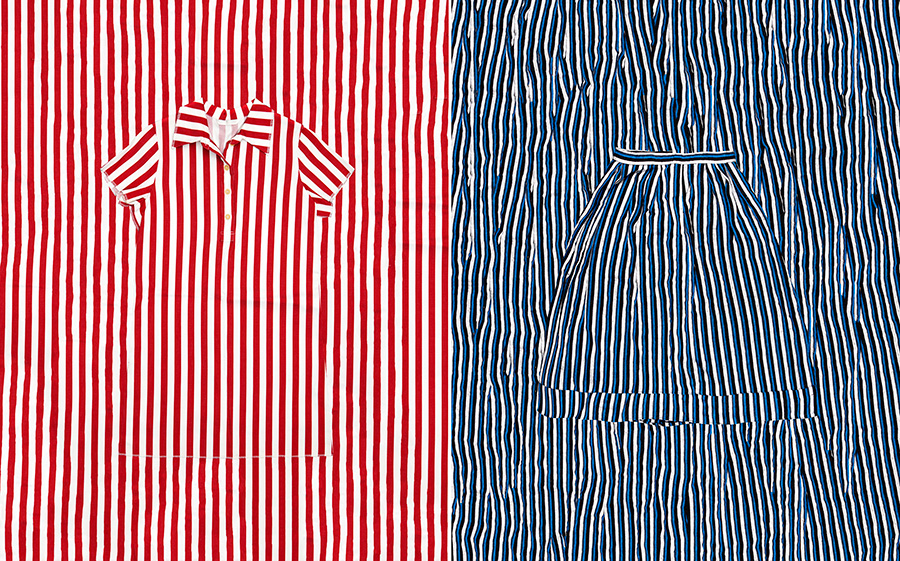작가 양호상의 전이 갤러리 NUDA에서 열린다. 이번 전시에서 작가는 패션과 산업을 통해 개성을 표방하는 몰개성의 시대를 이야기한다.
‘패션’은 산업발달 이 후 대량생산되고 사용가치보다 미적가치에 비중을 두게 되고, 유행을 통해 발전해나갔다. 개인의 정체성, 개성, 독특함을 가지고 있는 ‘패션’은 어느 순간 기본적 의미에서 벗어나 사회적 정체성을 형성하는데 중대한 역할을 하게 된다. ‘패션’은 하나의 사회적용어가 된 것이다. 패션을 통해 고급과 저급, 아름다움과 추함, 부와 가난등과 같은 용어들이 전달된다. 생각해보면, 언제부턴가 우리는 사회적 정체성과 개인의 정체성 구분이 모호해져 비슷하게 살아가고 있다.
작가 양호상의전은 오는 10월 14일부터 11월 6일까지 열린다.
‘패션’은 산업발달 이 후 대량생산되고 사용가치보다 미적가치에 비중을 두게 되고, 유행을 통해 발전해나갔다. 개인의 정체성, 개성, 독특함을 가지고 있는 ‘패션’은 어느 순간 기본적 의미에서 벗어나 사회적 정체성을 형성하는데 중대한 역할을 하게 된다. ‘패션’은 하나의 사회적용어가 된 것이다. 패션을 통해 고급과 저급, 아름다움과 추함, 부와 가난등과 같은 용어들이 전달된다. 생각해보면, 언제부턴가 우리는 사회적 정체성과 개인의 정체성 구분이 모호해져 비슷하게 살아가고 있다.
작가 양호상의
Stereogram_Wear
양 호 상
사람들의 입는 옷, 사는 집, 먹는 음식을 보면, 키보드의 control+c, control+v가 자꾸 머리속에 떠오른다.
세상은 비슷한 물건으로 채워져가고 있는 것 같다. 높이 올라있는 아파트들에서 마치 자판기에서 나오는 것 같이 복제된 사람들을 내뱉기도 하고 사람들이 모여 있는 곳은 매직아이를 보는 것처럼 착시현상이 일어나기도 한다. 도시를 걸을때면 사람들은 delete 키를 눌러 지우고 남겨진 비슷한 것들은 퍼즐조각 맞추듯이 계속 가상의 키보드를 누르고 있다. 퍼즐조각들을 통해 큰 구성을 향한 조각들로 변형하기 위해서 지속적인 붙여 넣기와 복사하기라는 방식을 취해 새로운 형태가 아닌 단순한 표면으로의 전환이 이루어지고 있는 것 같다.
이런 나의 시선은 자연스럽게 ‘패션’, ‘산업’, ‘사회’가 어떤 관계를 갖는지 바라보게 되었다. 산업발달 이 후 대량생산된 ‘패션’은 사용가치보다 미적가치에 비중을 두게되고, 유행을 통해 발전해나갔다. 개인의 정체성, 개성, 독틈함을 가지고 있는 ‘패션’은 어느 순간 기본적 의미에서 벗어나 사회적 정체성을 형성하는데 중대한 역할을 하게 된다. ‘패션’은 하나의 사회적 용어가 된 것이다. 패션을 통해 고급과 저급, 아름다움과 추함, 부와 가난등과 같은 용어들이 전달된다. 생각해보면, 언제부턴가 우리는 사회적 정체성과 개인의 정체성 구분이 모호해져 비슷하게 살아가고 있다.
개개인의 미세한 진동들은 사라지고 현대성이란 거대한 복제가 생겨난다. 그 시작점이라 할 수 있는 산업발달 이후 모던사회까지의 프린팅과 패턴등의 다양한 형태로 유행했던 ‘패션’을 특징적인 역사와 기억을 드러내기 위해 그 당시의 패션을 사진적으로 기록하고 사진의 재현과 디지털 복제를 통해 현대사회의 대량생산품인 오브제(objet)와 컴퓨터의 픽셀(pixel) 이미지로 표현하고자 하였다
양 호 상
사람들의 입는 옷, 사는 집, 먹는 음식을 보면, 키보드의 control+c, control+v가 자꾸 머리속에 떠오른다.
세상은 비슷한 물건으로 채워져가고 있는 것 같다. 높이 올라있는 아파트들에서 마치 자판기에서 나오는 것 같이 복제된 사람들을 내뱉기도 하고 사람들이 모여 있는 곳은 매직아이를 보는 것처럼 착시현상이 일어나기도 한다. 도시를 걸을때면 사람들은 delete 키를 눌러 지우고 남겨진 비슷한 것들은 퍼즐조각 맞추듯이 계속 가상의 키보드를 누르고 있다. 퍼즐조각들을 통해 큰 구성을 향한 조각들로 변형하기 위해서 지속적인 붙여 넣기와 복사하기라는 방식을 취해 새로운 형태가 아닌 단순한 표면으로의 전환이 이루어지고 있는 것 같다.
이런 나의 시선은 자연스럽게 ‘패션’, ‘산업’, ‘사회’가 어떤 관계를 갖는지 바라보게 되었다. 산업발달 이 후 대량생산된 ‘패션’은 사용가치보다 미적가치에 비중을 두게되고, 유행을 통해 발전해나갔다. 개인의 정체성, 개성, 독틈함을 가지고 있는 ‘패션’은 어느 순간 기본적 의미에서 벗어나 사회적 정체성을 형성하는데 중대한 역할을 하게 된다. ‘패션’은 하나의 사회적 용어가 된 것이다. 패션을 통해 고급과 저급, 아름다움과 추함, 부와 가난등과 같은 용어들이 전달된다. 생각해보면, 언제부턴가 우리는 사회적 정체성과 개인의 정체성 구분이 모호해져 비슷하게 살아가고 있다.
개개인의 미세한 진동들은 사라지고 현대성이란 거대한 복제가 생겨난다. 그 시작점이라 할 수 있는 산업발달 이후 모던사회까지의 프린팅과 패턴등의 다양한 형태로 유행했던 ‘패션’을 특징적인 역사와 기억을 드러내기 위해 그 당시의 패션을 사진적으로 기록하고 사진의 재현과 디지털 복제를 통해 현대사회의 대량생산품인 오브제(objet)와 컴퓨터의 픽셀(pixel) 이미지로 표현하고자 하였다
Stereogram_Wear
Yang Ho Sang
The 'Ctrl+c' and 'Ctrl+v' keys of the keyboard come into my mind when I observe the clothes people wear, houses they live in, and the food that they eat.
It seems like the world is filling up with similar objects. High-rise apartment buildings spit out cloned people like vending machines. Crowded places cause optical illusions like the Magic Eye. As I walk around the city, people seem to be pressing the virtual 'delete' key and they get wiped out as they piece together whatever is left behind. In order to become a part of a bigger whole, the puzzle pieces are constantly shifting on the surface, but not necessarily transforming, through the method of endless copying and pasting.
I naturally paid attention on how ‘fashion,’ ‘industry,’ and ‘society’ are related. The mass production of ‘fashion’ has taken emphasis on the aesthetic value rather than its value in use and it developed through trends after the industrial development took place. It gained a significant role to form social identity at some point in our lives aside from its basic meaning as it includes personal identity, individuality, and uniqueness. The ‘fashion’ has become a social term. Through fashion, the terms such as high class and low class, beauty and ugliness, and wealth and poverty are manifested. In retrospect, we live in a world where the social identity and personal identity are ambiguously divided which I believe shape similar lifestyles.
The distinctive vibration of each and every person's individuality has disappeared, and the gigantic cloning of modernity takes place. Through photographic representation and digital reproduction, 'Stereogram I' focuses on the beginning of it all-- the Industrial Revolution to the modern society. Using printing, patterns, and other form of media, the mass-produced object (objet) of the time was recorded and expressed through computer pixelated images in order to reveal popular 'fashion,' events and memories of the time.
Yang Ho Sang
The 'Ctrl+c' and 'Ctrl+v' keys of the keyboard come into my mind when I observe the clothes people wear, houses they live in, and the food that they eat.
It seems like the world is filling up with similar objects. High-rise apartment buildings spit out cloned people like vending machines. Crowded places cause optical illusions like the Magic Eye. As I walk around the city, people seem to be pressing the virtual 'delete' key and they get wiped out as they piece together whatever is left behind. In order to become a part of a bigger whole, the puzzle pieces are constantly shifting on the surface, but not necessarily transforming, through the method of endless copying and pasting.
I naturally paid attention on how ‘fashion,’ ‘industry,’ and ‘society’ are related. The mass production of ‘fashion’ has taken emphasis on the aesthetic value rather than its value in use and it developed through trends after the industrial development took place. It gained a significant role to form social identity at some point in our lives aside from its basic meaning as it includes personal identity, individuality, and uniqueness. The ‘fashion’ has become a social term. Through fashion, the terms such as high class and low class, beauty and ugliness, and wealth and poverty are manifested. In retrospect, we live in a world where the social identity and personal identity are ambiguously divided which I believe shape similar lifestyles.
The distinctive vibration of each and every person's individuality has disappeared, and the gigantic cloning of modernity takes place. Through photographic representation and digital reproduction, 'Stereogram I' focuses on the beginning of it all-- the Industrial Revolution to the modern society. Using printing, patterns, and other form of media, the mass-produced object (objet) of the time was recorded and expressed through computer pixelated images in order to reveal popular 'fashion,' events and memories of the time.


